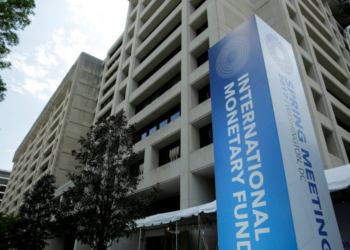In Nigeria where unemployment is a serious issue, the local businesses have a special position in the industrial sector because it has created employment and has been able to utilise labour. The local businesses, otherwise known as SMEs which means, Small And Medium Enterprise are everywhere, found on every street and corner as they surround us.
There is however no universal definition of SMEs that is widely accepted as it differs and varies from countries, but this is usually based on employment, assets or combination of the two. Institutions and organizations define SMEs in different ways depending on the purpose and the objective. Take for example, according to Organization for Economic Co-operation and Development OECD (2005) SMEs are considered to be independent firms that employ less than a given number of employees. However, SMEs were classified in terms of size, and financial assets.
The Small and Medium Industries and Equity Investment Scheme (SMIEIs), defined SME as an enterprise with a 200 million naira maximum asset base, with the exclusion of land and working capital and with a workforce of not less than 10 employees and not more than 300 employees. Akabueze,(2002).
Explore Economic Research Data From Nairametrics on Nairalytics
The Third National Development plan of Nigeria (1975 – 1980) defined a small scale business as a manufacturing firm that employs less than ten people, or whose machinery and cost of equipment does not exceed N600,000
The Federal Government Small Scale Industry Development Plan of 1980 defined a small scale business in Nigeria as any manufacturing process or service industry, with a capital not exceeding N150, 000 in manufacturing and equipment alone.
These definitions give a clearer explanation as to how the meaning of SMEs differs and varies. However, just to give you a clearer understanding of what local businesses or SMEs mean, they are independently owned organisations that require less capital and less workforce and less or no machinery. They are ideally suited to operate on a small scale to serve a local community and to provide profits to the business owners.
READ MORE: FG to disburse N97.3 billion to tech innovators, agric enterprises
Most enterprises in Nigeria, most of which are in the commercial sector are categorized as small businesses. The role of the small and medium enterprises towards the development of Nigeria is of great importance as it has contributed greatly to the country in terms of growth and development and also in providing employment opportunities.
From seminars to workshop initiatives for SMEs both locally and internationally, a lot is being said about SMEs all over the World.
According to the Central Bank of Nigeria report (2003), SMEs are a very important economic catalyst in developing and industrialized countries.
According to the United Nations Industrial Development Organization (UNIDO), developing countries can conquer poverty and inequality by democratizing, deregulating, and liberalizing the integration of the global economy. Recent studies have shown that SMEs contribute to over 55% of GDP and over 65% of total employment in high-income countries also that SMEs and informal enterprises account for over 60% of GDP and over 70%of total employment in middle-income countries (OECD, 2004).
READ ALSO: These Nigerian businesses are being affected by COVID-19
However, considering the term “small”, there’s a whole lot of enormous challenges that come with it. In Nigeria, the factors working against the development and growth of local businesses are quite numerous, some of which include:
- The issue of funding is a major problem with SMEs in Nigeria. However, the problem is not how to source it but the accessibility to either short or long term loans.
- Lack of infrastructural facilities is a serious impediment to the performance of SMEs. The problem of inadequate infrastructural facilities includes electricity, good road network, availability of potable water, and solid waste management. These infrastructures are left to the business owners to provide themselves.
- Poor Management and Low Entrepreneurial Skill Base is a serious clog in the survival of small businesses as there is a lack of essential and required expertise in business which leads to wrong and costly decisions and mismanagement.
- Entrepreneurs often blame their failures on inadequate sales. However, the problem lies with poor marketing skills that could help promote their sales.
- Most entrepreneurs go into business without proper planning by taking a realistic view of what their strengths and weaknesses are, let alone giving careful consideration and analyzing the economic trends or business conditions in that particular sector of activity, which sometimes leads to mishandling when the business starts to expand.
- The root of most employee problems in Nigeria is poor personnel management. They put aside personnel matters till crises set in. Such crises usually pose serious threats to the firm’s survival if they are not promptly looked into.
- The harsh deteriorating macroeconomic environment in Nigeria has adversely affected the performance of small business enterprises and has posed as a major challenge to their survival and growth. Most small business enterprises are struggling with the problem of uncertainty caused by the unstabilized macroeconomic environment and policy shifts.
With all of this ongoings, some of the solutions preferred to ease these challenges include:
- The need for government, and non-governmental organizations to create Seminars and workshops initiatives and other forums, to establish a platform for the interaction of SMEs owners/managers with others which can help to improve on their management capabilities.
- Government should also provide the necessary infrastructures in order to ease the burdens and thereby encourage and promote rural industrialization.
- The SME owners/managers should strive to develop effective marketing strategies in order to boost business operations which will become profitable.
- It is important for SMEs to develop good personnel management policies to avoid crises that could affect their business.
- Local business owners should take to proper planning, realizing his strengths and weaknesses before diverting into any business to avoid mishandling.
- Goverments should help create a macroeconomic environment that is stable as it will enable these local businesses to make reasonable forecasts on costs, turnover, and return on investment.
- The government should help in making funds easily accessible to SME owners/managers, be it short or long term loans that could help to encourage them to execute their business plan.
- SMEs operators should also develop their competences in managing and sustaining their businesses by constantly engaging in training, research and development.






















